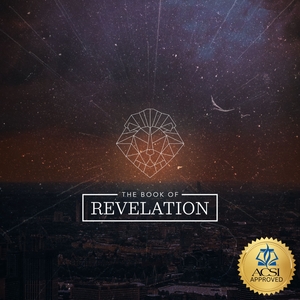What is the connection between the feasts in Leviticus 23 and God's plan for the ages? And does the final throne judgment in Revelation 20:5 provide any room for the "rest of the dead" to be granted time to live once again as human beings (Ezekiel 37) and be judged by how they live according to God’s laws at that time?
In Leviticus 23, the Lord ordains a weekly Sabbath and seven annual feasts for Israel. These feasts are Passover, Unleavened Bread, Weeks, Pentecost, Trumpets, Atonement and Tabernacles. The symbology of these feasts picture the work of Christ in all cases. The first three correspond to Jesus’ first coming, Pentecost corresponds to the start of the Church, and the final three feasts relate to end times events and Christ’s Second Coming. For more on this topic, please see the following video from our 2018 Conference: Feasts of Israel
None of these feasts have anything to say about events after Jesus’ Second Coming, since the final feast pictures Jesus’ arrival in the Kingdom. Furthermore, the teaching of Revelation 20 concerning the Great White Throne judgment precludes any “second chance” theology.
Rev. 20:4 Then I saw thrones, and they sat on them, and judgment was given to them. And I saw the souls of those who had been beheaded because of their testimony of Jesus and because of the word of God, and those who had not worshiped the beast or his image, and had not received the mark on their forehead and on their hand; and they came to life and reigned with Christ for a thousand years.
Rev. 20:5 The rest of the dead did not come to life until the thousand years were completed. This is the first resurrection.
Rev. 20:6 Blessed and holy is the one who has a part in the first resurrection; over these the second death has no power, but they will be priests of God and of Christ and will reign with Him for a thousand years.
John tells us that at the start of the Kingdom, all saints are resurrected and present to enter into the Kingdom and enjoy their life of glory with Christ. Collectively, all saints participate in the “first resurrection.” Notice in v.6 John says that only those who participate in the first resurrection are blessed of God. Over these the second death has no power, therefore anyone (and everyone) who is not part of the first resurrection will suffer the second death.
Later when the second death happens, we find those souls being judged, not on the basis of grace, but on the basis of their evil deeds:
Rev. 20:11 Then I saw a great white throne and Him who sat upon it, from whose presence earth and heaven fled away, and no place was found for them.
Rev. 20:12 And I saw the dead, the great and the small, standing before the throne, and books were opened; and another book was opened, which is the book of life; and the dead were judged from the things which were written in the books, according to their deeds.
Rev. 20:13 And the sea gave up the dead which were in it, and death and Hades gave up the dead which were in them; and they were judged, every one of them according to their deeds.
Rev. 20:14 Then death and Hades were thrown into the lake of fire. This is the second death, the lake of fire.
Rev. 20:15 And if anyone’s name was not found written in the book of life, he was thrown into the lake of fire.
While the book of life is opened, this is done merely to show evidence that none of these individuals were included in that book. Had they been included in that book (from the foundation of the earth, as Paul says), then they would not be present at this judgment. Instead, they would have been resurrected in the first resurrection and received eternal life.
Scripture quotations taken from the (NASB®) New American Standard Bible®, Copyright © 1995, 2020 by The Lockman Foundation. Used by permission. All rights reserved. www.lockman.org







